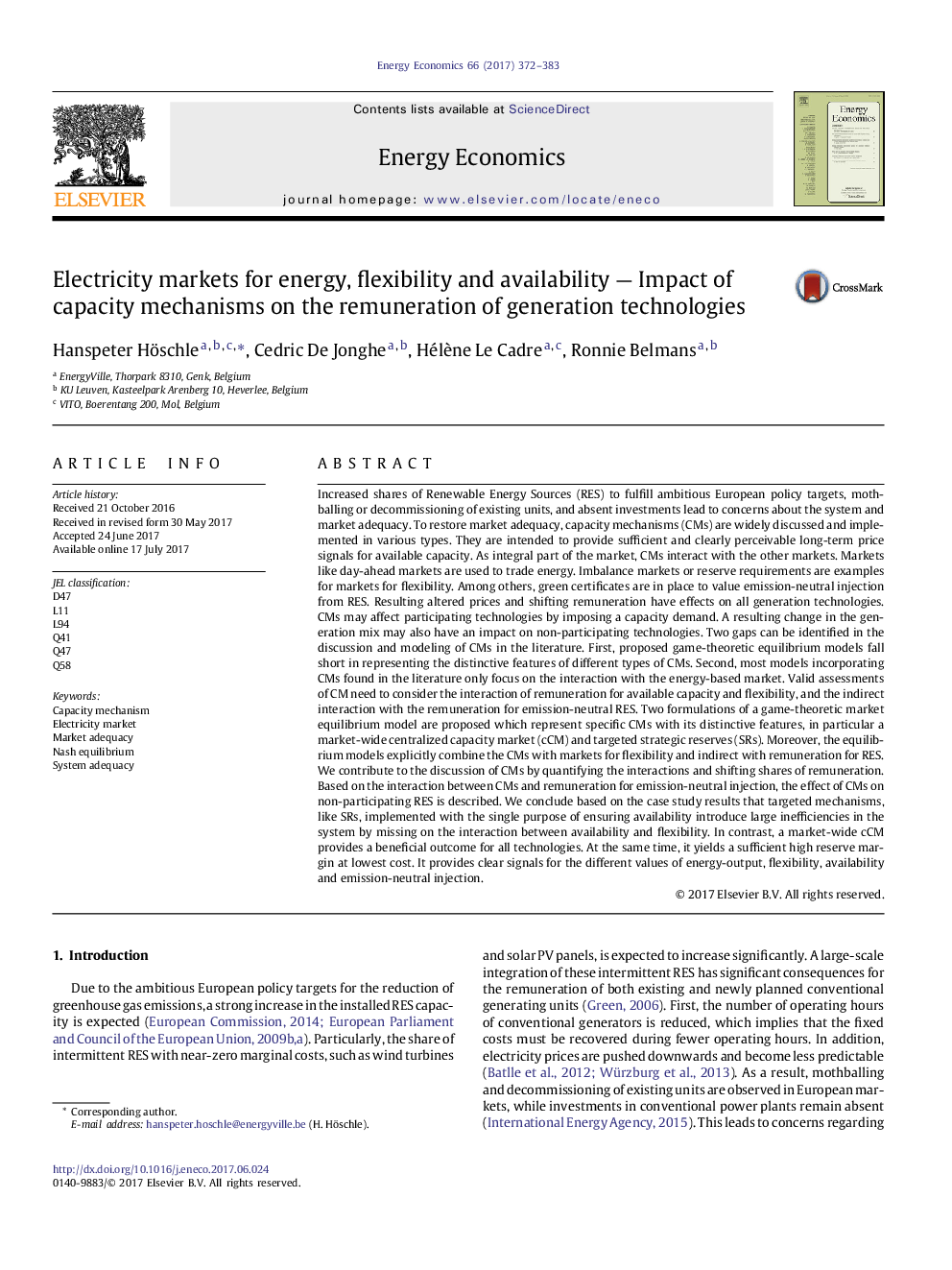| کد مقاله | کد نشریه | سال انتشار | مقاله انگلیسی | نسخه تمام متن |
|---|---|---|---|---|
| 5063631 | 1476698 | 2017 | 12 صفحه PDF | دانلود رایگان |
- Comparison of capacity mechanism with a game-theoretic market equilibrium model
- Interaction of market values energy, availability and flexibility prices examined
- Strategic reserves with purpose of ensuring availability introduce inefficiencies
- Capacity markets enable clear price signals for different market values.
- Capacity mechanism may also influence non-participating technologies like RES.
Increased shares of Renewable Energy Sources (RES) to fulfill ambitious European policy targets, mothballing or decommissioning of existing units, and absent investments lead to concerns about the system and market adequacy. To restore market adequacy, capacity mechanisms (CMs) are widely discussed and implemented in various types. They are intended to provide sufficient and clearly perceivable long-term price signals for available capacity. As integral part of the market, CMs interact with the other markets. Markets like day-ahead markets are used to trade energy. Imbalance markets or reserve requirements are examples for markets for flexibility. Among others, green certificates are in place to value emission-neutral injection from RES. Resulting altered prices and shifting remuneration have effects on all generation technologies. CMs may affect participating technologies by imposing a capacity demand. A resulting change in the generation mix may also have an impact on non-participating technologies. Two gaps can be identified in the discussion and modeling of CMs in the literature. First, proposed game-theoretic equilibrium models fall short in representing the distinctive features of different types of CMs. Second, most models incorporating CMs found in the literature only focus on the interaction with the energy-based market. Valid assessments of CM need to consider the interaction of remuneration for available capacity and flexibility, and the indirect interaction with the remuneration for emission-neutral RES. Two formulations of a game-theoretic market equilibrium model are proposed which represent specific CMs with its distinctive features, in particular a market-wide centralized capacity market (cCM) and targeted strategic reserves (SRs). Moreover, the equilibrium models explicitly combine the CMs with markets for flexibility and indirect with remuneration for RES. We contribute to the discussion of CMs by quantifying the interactions and shifting shares of remuneration. Based on the interaction between CMs and remuneration for emission-neutral injection, the effect of CMs on non-participating RES is described. We conclude based on the case study results that targeted mechanisms, like SRs, implemented with the single purpose of ensuring availability introduce large inefficiencies in the system by missing on the interaction between availability and flexibility. In contrast, a market-wide cCM provides a beneficial outcome for all technologies. At the same time, it yields a sufficient high reserve margin at lowest cost. It provides clear signals for the different values of energy-output, flexibility, availability and emission-neutral injection.
Journal: Energy Economics - Volume 66, August 2017, Pages 372-383
